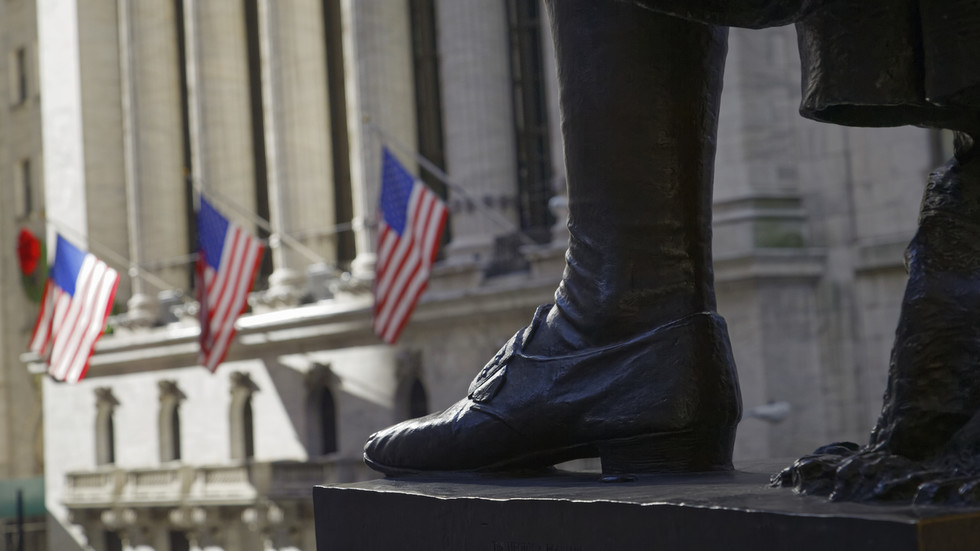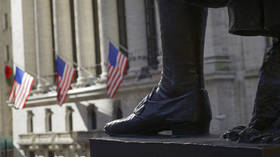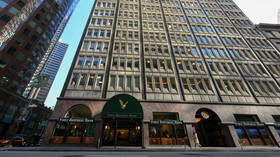
Mid-sized lenders have shed market value, fueling concerns over the health of the financial system

© Getty Images / Jon Hicks
Shares of several regional lenders plunged on Tuesday after the collapse of First Republic Bank, the third major casualty of the biggest crisis to hit the banking sector in the US since 2008.
Los Angeles-based PacWest Bancorp, which has $41.2 billion in assets, and Arizona-based Western Alliance Bancorp, which has $68 billion in assets, led the steep selloff. Shares of both lenders were down by at least 15% on Tuesday, triggering investor concerns about the financial health of other mid-sized banks. The pair has shed more than $5 billion in market value so far this year.
The KBW Bank Index, a benchmark index tracking the leading lenders, slumped 5.52%, hitting its lowest since December 2020. The S&P 500 Index sank almost 2% at one point.
The embattled First Republic Bank was taken over by regulators on Monday and will be sold to JPMorgan Chase, America’s biggest bank, which will “assume all deposits, including all uninsured deposits, and substantially all assets” of First Republic in a $10.6 billion deal.

“If a ‘confidence crisis’ can happen to First Republic, it can happen to any bank in this country,” CEO of Longbow Asset Management Jake Dollarhide told Reuters.
Investors fear the latest turmoil, which began with the failures of Silicon Valley Bank and Signature Bank in March, could spread to other regional banks. Both were shut down by regulators following massive bank runs.
“Wall Street is quickly hitting the sell button as banking turmoil appears it is not going away anytime soon,” senior market analyst at Oanda, Ed Moya, told Bloomberg. “Risk appetite did not stand a chance as traders focused on lingering doubts over the regional banks, rising recession odds, and growing risks that the US could default on its debt next month,” he added.
The selloff was driven by the threat of higher interest rates combined with high inflation data, making the situation worse and pointing to an economic downturn, economists say.
For more stories on economy & finance visit RT’s business section




